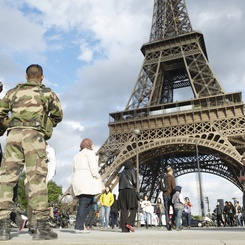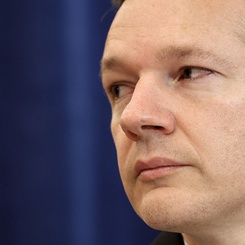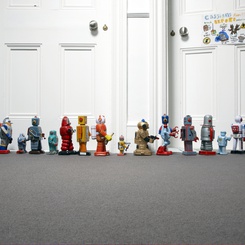New research from Prof. Marwan Sinaceur at ESSEC Business School is the first to investigate the potential role of sadness expression in conflict and negotiation. From the paper “Weep and Get More: When and Why Sadness Expression is Effective in Negotiations” by Marwan Sinaceur (ESSEC), Shirli Kopelman, Dimitri Vasiljevic, and Christophe Haag - Journal of Applied Psychology.
In a 1970 interview with Life magazine, Nikita Khrushchev relayed an anecdote from the peak of the October 1962 Cuban Missile Crisis, during which presidential aide Robert F. Kennedy bared his emotions to Soviet Ambassador Anatoly Dobryni: “I haven’t seen my children for days now,” Kennedy lamented while almost breaking down in tears, “and the President hasn’t seen his either [...] I don’t know how much longer we can hold out against our generals.”
In response to the sadness conveyed by Robert Kennedy, Soviet Premier Khrushchev could “see that [he] had to reorient [the Soviet] position swiftly” and sent the Americans a note agreeing to remove soviet missiles and bombers (Khrushchev, 1970, p. 51). Of course, many factors influenced Khrushchev’s decision. However, in his own wording, the anecdote still suggests that Kennedy’s expression of sadness contributed to the timely resolution of an extremely difficult negotiation.
In fact, many business and diplomacy analysts have anecdotally observed that, although it seems counter-intuitive, expressing sadness can – under appropriate circumstances - elicit concessions in conflict and negotiation. But until now, researchers have never specifically investigated this relationship, assuming that only emotional displays of toughness and aggressiveness, but not displays of sadness, would elicit concessions from recipients.
When and why is expressing sadness an effective negotiation tactic?
To answer this question, this research examined actual, face-to-face negotiations by conducting three experiments focused on specific social situations in order to determine which conditions could provide a counterpart (the recipient) with reasons to feel concern for a negotiator conveying sadness (the expresser), and act upon this concern. Not only do the findings show that expressing sadness can be an effective negotiation tactic, they also identify several conditions under which concern can be strategically elicited by a negotiator expressing sadness:
- When the recipient perceives s/he has a power advantage. The first experiment revealed that recipients responded positively to another expressing sadness only when he/she was perceived as powerless already, thus giving the recipient a reason to feel concern and want to help.
- When the recipient anticipates a future interaction.The first experiment also revealed that recipients responded positively to another expressing sadness only when they anticipated a future interaction, because, under these circumstances, establishing a good working relationship was seen as important.
- When the recipient perceives the relationship as collaborative. The second experiment indicated that the social nature of the relationship between negotiators could make recipients concede more to a sad expresser, even when no future interaction was anticipated. Namely, the findings show that only when the relationship was seen as collaborative did the recipient feel concern and act on it, unlike in exchange-based or transactional recipient-expresser relationships.
- When the recipient feels the pressure of social norms. The third experiment - drawing from previous research on how social norms dictate the appropriateness of emotional expression – findings demonstrate that, not only can expressing sadness be more effective than expressing no emotions at all, it is also distinct from, and it can be more effective than, expressing anger.
Of lions and lambs
Most prior research on emotional expression in negotiation had focused on anger, and found it could be an effective negotiation strategy (e.g., when the angry expresser is seen as high-power rather than low-power). However, while anger arises when a person’s goals are frustrated and they blame someone else for that frustration, sadness implies that there is lack of blaming behavior. The results therefore suggest that when it is not appropriate to blame others for conflict, sadness is likely to be more effective than anger at producing a desired outcome.
This research proposes a counter position by demonstrating that perceptions of a kind of softness – and its impact on one negotiator’s concern for another – can in fact be more effective under some circumstances. Being aggressive is not the only way to make others concede. This is important because, in many real-life negotiations, negotiators do not have much power and thus cannot influence others through being aggressive. A softer strategy can work best under the right circumstances.
Publications by Prof. Marwan Sinaceur
- Sinaceur, M., Kopelman, S., Vasiljevic, D., & Haag, C. (in press). Weep and get more: When and why sadness expression is effective innegotiations. Journal of Applied Psychology.
- Sinaceur, M., Maddux, W., Vasiljevic, D., Nuckel, R., & Galinsky, A. D. (2013). Good things come to those who wait: Late first offers facilitatecreative agreements in negotiation. Personality and Social Psychology Bulletin, 39, 814-825.
- Sinaceur, M., Adam, H., Van Kleef, G. A., & Galinsky, A. D. (2013). The advantages of being unpredictable: How emotional inconsistencyextracts concessions in negotiation. Journal of Experimental Social Psychology, 49, 498-508.
- Sinaceur, M., Van Kleef, G. A., Neale, M. A., Adam, H., & Haag, C. (2011). Hot or cold: Is communicating anger or threatsmore effective in negotiation? Journal of Applied Psychology, 96, 1018-1032.
- Swaab, R., Maddux, W. W., & Sinaceur, M. (2011). Early words that work: Whenand how virtual linguistic mimicry facilitates negotiation outcomes. Journal of Experimental Social Psychology, 47, 616-621.
- Sinaceur, M. (2010). Suspending judgment to create value: Suspicionand trust in negotiation. Journal of Experimental Social Psychology, 46, 543-550.









